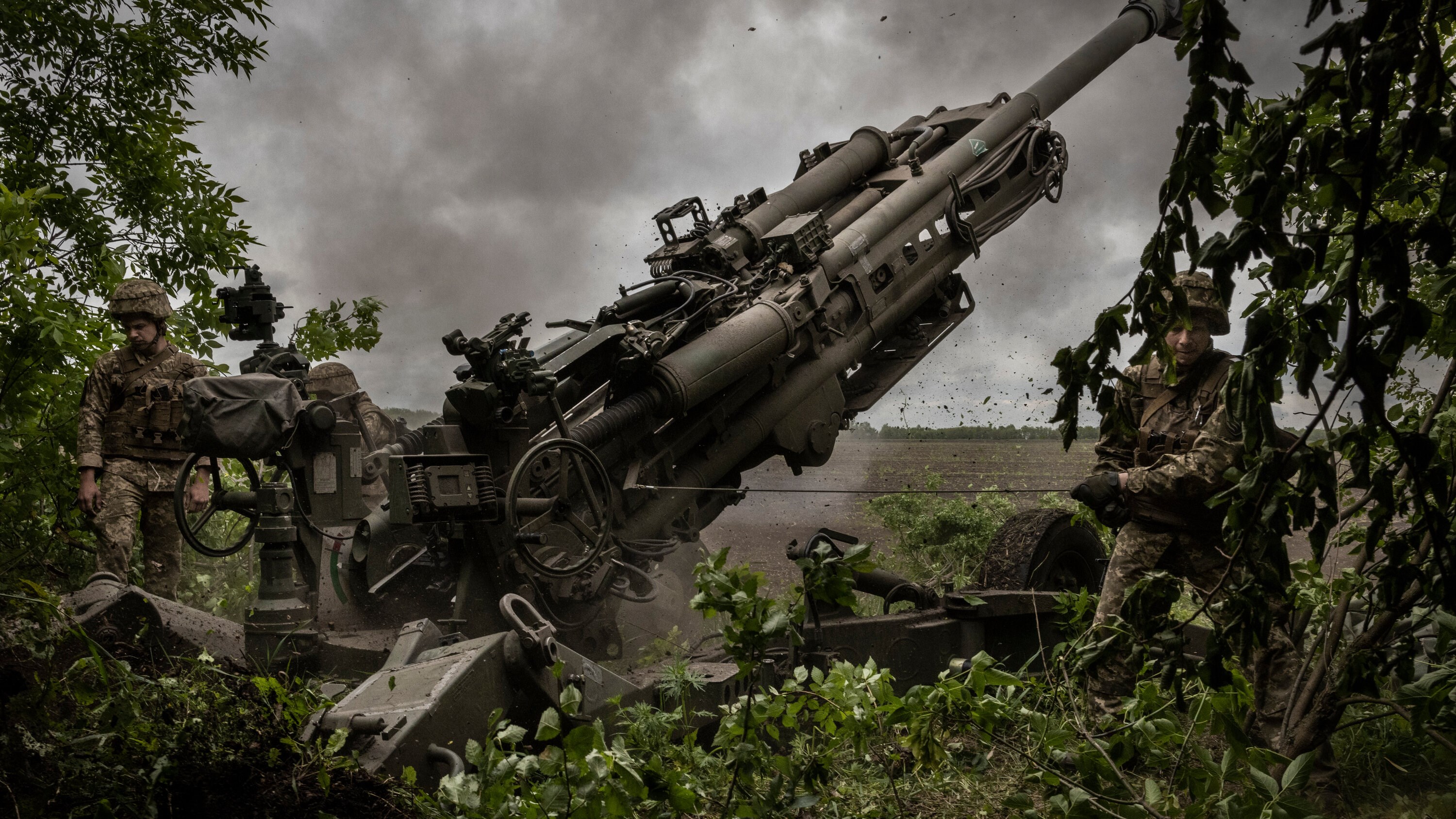Western artillery, rocket systems hitting Donbass civilians: Moscow
Russia's Ambassador to the United Nations reveals that Ukraine is using Western systems to target Donbass civilians and that said equipment is ending up on the black market.
-

A Ukrainian gun crew fired an M777 howitzer toward the Donetsk People's Republic
The long-range artillery and rockets delivered by the United States and the United Kingdom to Ukraine have emboldened Kiev to up its strikes on civilian targets and residential areas in the Donbass republics, Russian Ambassador to the United Nations Vassily Nebenzia said Monday at a Security Council meeting.
"Leaving aside the entirely unconvincing explanations of such an irresponsible step (the West sending the long-range systems to Ukraine), I would like to point out that the Kiev regime has already taken this as carte blanche to continue and intensify the shelling of civilian targets in Donbas, where after a number of recent defeats, the Ukrainian artillery was no longer able to reach," Nebenzia told the UNSC meeting.
He detailed that Kiev had been using the recent munitions delivered by the US to attack schools in Donbass, resulting in civilian casualties, including children.
The ambassador put to question the US and Ukrainian claims that they would restrict Kiev's use of systems against Russian territory.
The Pentagon has decided to provide High Mobility Artillery Rocket Systems (HIMARS) to Ukraine due to the nature of the conflict changing to an "artillery duel", Under-Secretary of Defense for Policy Colin Kahl told a press briefing on Wednesday.
US President Biden had stated on Monday that Washington would not provide Kiev with weapons capable of targeting Russian territory.
The HIMARSs are the centerpiece of a $700 million package unveiled last week, which includes "Javelin anti-tank missiles, Stinger antiaircraft missiles, powerful artillery and precision rocket systems, radars, unmanned aerial vehicles, Mi-17 helicopters, and ammunition," President Biden said.
Russia reserves the right to "move the line of threat" emanating from Ukraine to include the possible range of the new systems, as well as to launch strikes on centers where decisions are made to use them, Nebenzia added.
In addition to the US package, which raised the total of supplies from Washington to Kiev to more than $5 billion since Biden took office last year, the United Kingdom said it was giving the Eastern European country with US-made long-range M270 multiple launch rocket systems.
Arms to Ukraine ending up on black market
Also according to Nebenzia, the weapon systems the West is delivering to Ukraine are ending up on the black market "thanks to well-known, incredible corruption of Ukrainian officials", making it possible for international terrorist organizations to purchase such equipment.
"A very simple internet search will show you that American Stingers are being sold for $7,000 a piece, and Javelins for $30,000 each," Nebenzia told the UNSC. "Of course, these sales won’t be missed out by international terrorists, including those that act in Europe and America."
Russia has repeatedly warned the West, even via a formal diplomatic note, against continuing to send arms to Ukraine over the war in the country, with Moscow stressing that it would only exacerbate the situation.
The visibility of such weapons is almost nonexistent, in US media, which cites sources briefed on US intelligence. One key aspect of the issue, however, is that Washington relies on Kiev for information about what is happening in the country due to the lack of US presence on the ground.
Nebenzia denies sexual assault allegations
The Russian Ambassador to the UN, furthermore, denied accusations that Moscow's forces have carried out sexual crimes in Ukraine. He backed his claims with a lack of evidence surrounding such crimes, saying sexual crimes have been carried out by Ukrainian forces instead.
"I would once again like to categorically refute any accusations against Russian service personnel of sexual violence. We roundly condemn this lie," he told the UNSC.
Nebenzia invited United Nations colleagues to be cautious about the allegations given the lack of an "evidentiary basis" to confirm them.
The actions of Russian forces are subject to strict rules, especially rules regarding the treatment of civilians, he explained.
He also cited a list of incidents with evidentiary support in which Ukrainian forces faced accusations of committing crimes against civilians in light of the Ukraine war.

 4 Min Read
4 Min Read









